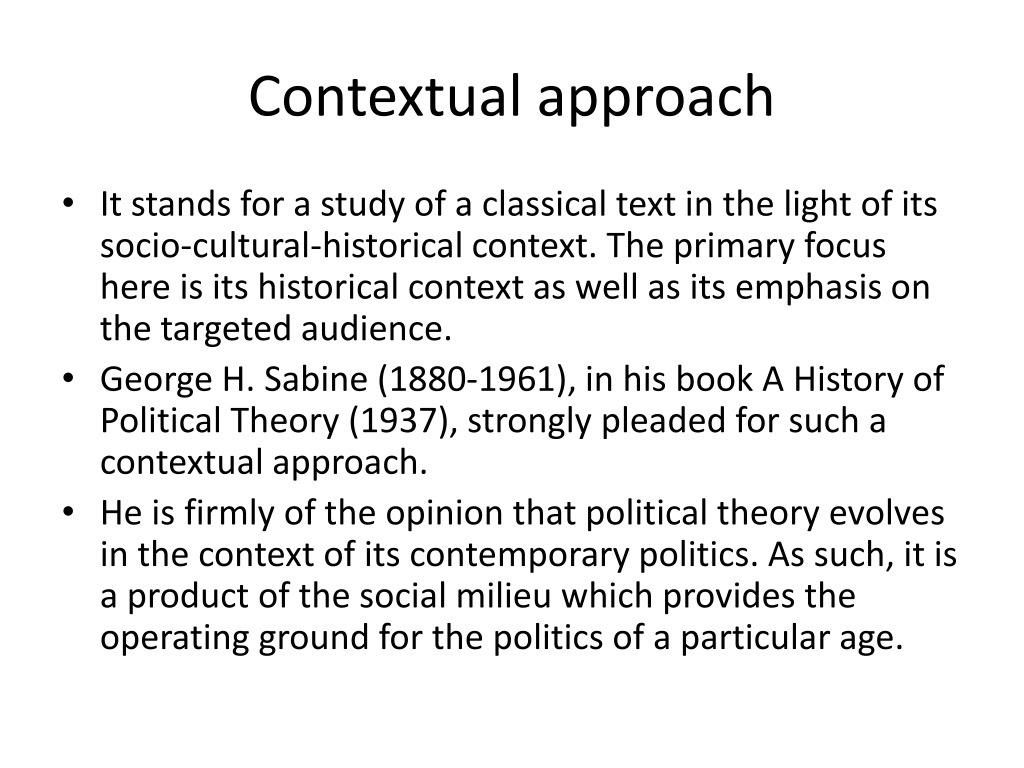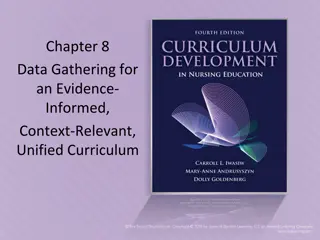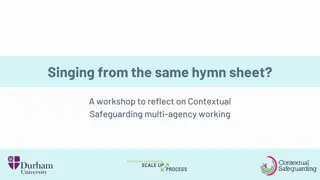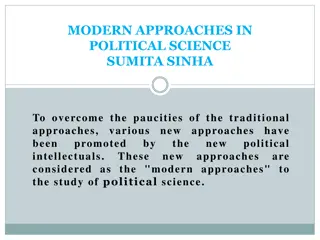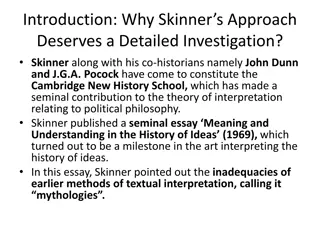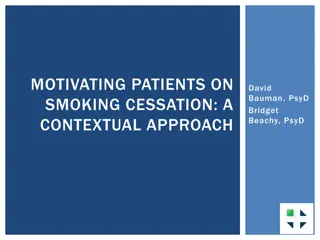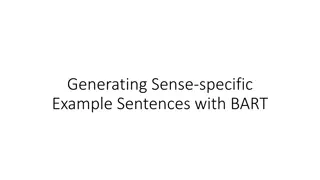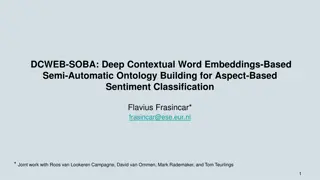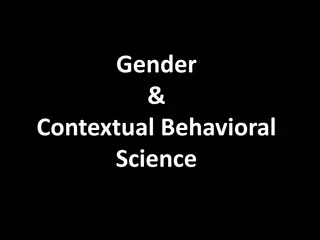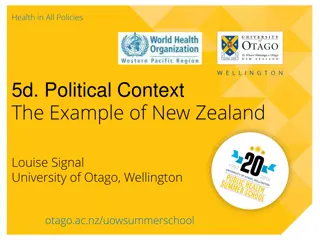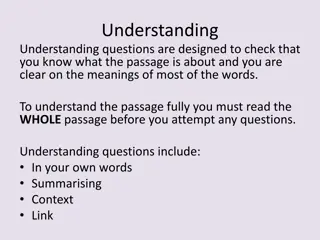Understanding Political Theory through a Contextual Approach
Exploring G.H. Sabine's perspective on political theory through a contextual approach, emphasizing the importance of historical context and societal influences. Sabine argues that while political theory evolves with its contemporary politics, it should be analyzed within its specific time and social milieu. However, he also acknowledges the broader utility of political theory as a guide for diverse situations and as an analytical tool for further political thinking. The limitations of this approach are discussed, highlighting the risks of reducing political theory to mere byproducts of social situations and overlooking its intrinsic value and universality.
Download Presentation

Please find below an Image/Link to download the presentation.
The content on the website is provided AS IS for your information and personal use only. It may not be sold, licensed, or shared on other websites without obtaining consent from the author. Download presentation by click this link. If you encounter any issues during the download, it is possible that the publisher has removed the file from their server.
E N D
Presentation Transcript
Contextual approach It stands for a study of a classical text in the light of its socio-cultural-historical context. The primary focus here is its historical context as well as its emphasis on the targeted audience. George H. Sabine (1880-1961), in his book A History of Political Theory (1937), strongly pleaded for such a contextual approach. He is firmly of the opinion that political theory evolves in the context of its contemporary politics. As such, it is a product of the social milieu which provides the operating ground for the politics of a particular age.
Contextual Approach: G.H.Sabine (Contd.) Therefore, for Sabine, political theory is an ever- evolving process. It has no concluding chapter. Nor could it rightfully claim to have found the ultimate truth. Thus, being context-specific, it could not be taken to be universally valid. So the best way to understand and interpret it is to examine it in the context of time, place and social milieu. However, Sabine s analysis of political theory does not end here. He further asserts that political theory, though contingent on its environing circumstances, still could hold a wider appeal.
Contextual Approach: G.H.Sabine (Contd.) This is so because it tries to describe its locational situation, analyze its cause and also attempts to offer appropriate solutions. This is the process which Sabine calls factual, causal and valuational aspects of political theory. In the process, Sabine makes an extremely valid and nuanced point. In his view, even though political theory might not claim universal validity, nonetheless it could be put into two meaningful uses. i. One, it could work as a guide for other situations; and ii. Two, it could provide us with appropriate analytical tools for further political thinking.
Limitations of the Contextual Approach One, if political theory is simply considered to be nothing more than a byproduct of a particular social situation, then it could lead to two major logical conclusions: i. The entire spectrum of political theory/political philosophy, would be reduced to being just contigental, having no intrinsic worth of its own. But we know it for certain that some of the seminal ideas like justice , liberty , right , consent , obligation have held their ground in different ages. ii. Such an approach stands to deny not only the intrinsic worth of political theory, but also its perennial and universal validity.
Limitations of the Contextual Approach (Contd.) If such a formulation is accepted then it would logically follow that human beings could hardly learn anything from the past or could hardly use the ideas developed in the past. A second major limitation of the contextual approach is that it denies the fact that political philosophy has its own momentum and autonomy. Being influenced by the circumstances of its time is not one way traffic. In turn, it also affects its time and circumstances. Political philosophy and its environing circum stances affect each other in their own way.
Concluding Observations Thus, despite being a product of its time, political philosophy often cuts across its spatio-temporal barriers and finds universal and perennial validity. According to Quentin Skinner, a scholar of Cambridge New History School, the main strategy for the understanding of the text should be to enquire what the author sought to mean and how that meaning was sought to be taken. However, Skinner, despite his broadly belonging to the contextual school, refuses to put total reliance on the contextual reading of the text.
Concluding Observations(Contd.) Apart from its intellectual, political and linguistic context, the text and its other interpretations would have to be taken into account. For such an approximation of an approach, Skinner suggests a dialogue between philosophical analysis and historical evidence. Both textual and contextual approaches have their own strengths and weaknesses. A text has its own strength in terms of its universal and perennial validity.
Concluding Observations(Contd.) On the other hand, a rational probe into the context of a text leads to its better understanding. In fact, even a great thinker has two kinds audiences- contemporary and universal. A great thinker tries to tackle the problems confronting her/his times and to that extent her/his targeted audiences are her/his contemporaries. But simultaneously s/he is also targeting the larger audiences- much beyond her/his time and spatial location. In other words, s/he tries to pursue both the relative and absolute truth.
Concluding Observations(Contd.) Such an understanding of a classical text calls for a syncretic approach making use of both textual and contextual approaches as the situation demands. Thus, total reliance on either of the two approaches will be like going to the extreme and therefore will prove to be a futile exercise to understand the real meaning and significance of a classical text.
